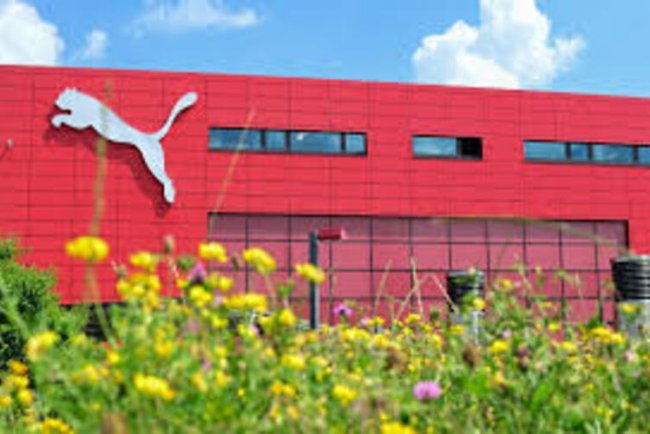Schwarz Group’s PreZero signs partnership with insect farming firm
Lidl’s parent company Schwarz Group is partnering with biotech firm REPLOID to develop an insect farming and processing facility in Germany, aiming to turn food waste into eco-friendly products.

Schwarz Groupthe parent business of Lidl and Kaufland's environmental division PreZero has signed a memorandum of understanding (MoU) with Austrian biotechnology firm REPLOID Group AG. With ideas to build an insect-farming and processing plant in Germany by the end of 2026, this agreement represents a major step toward the creation of sustainable, insect-based solutions using food waste.
The non-binding MoU specifies suggested cooperation in several important sectors. The main aim of this cooperation is to build a new building in Buchen, Baden-Wrttemberg. Using insect larvae to digest food waste is the main goal of the project. This way, food waste can be turned into new things like food and materials, and it's also good for the environment. Leading media source says the facility will also house a processing plant for turning larvae into valuable goods like fertiliser and raw materials fit for different industries.
PreZero and REPLOID intend to introduce a combined brand for insect-derived items, therefore indicating their dedication to building a solid market presence in this developing industry, not only in infrastructure. The venture will be a vertically integrated model of sustainability as the emphasis will be on the whole cyclefrom waste conversion using insect larvae to end-product distribution.
Rapid expansion of the European culinary insect sector is occurring. Recent studies in the sector predict the market will be worth $1.2 billion by 2030. With an expected compound annual growth rate of 45% between 2024 and 2030, Western Europe is especially exhibiting strong momentum. Europe is now the frontrunner in the move to alternative protein sources and sustainable food systems since it produces more than a quarter of the world's edible insects.
Rising interest in sustainable agriculture and trash management techniques aligns with this growth pattern. Particularly larvae, insects are increasingly regarded as effective means of transforming food waste into premium goods. They can greatly lower the amount of waste while creating valuable by-products like organic fertiliser and protein-rich feed. PreZero and REPLOID want to help create a circular economy in which waste turns into a valuable resource by using this potential.
Along with its division GreenCycle GmbH, PreZero Stiftung & Co. KG is very important in the Schwarz Group's plan to be sustainable. Resource efficiency, recycling, and garbage management are two areas of expertise for both companies. PreZero is going beyond just controlling waste with this latest step to turn it into materials that advance environmental and financial objectives as well.
The proposed facility in Buchen demonstrates creative use of resources and location. Found in southwest Germany, the area provides access to the technological infrastructure and transportation networks required for such a forward-looking venture. The partners want to enter the rapidly expanding market for insect-based products promptly by finishing the plant by 2026.
Based in Wels, Austria, REPLOID Group AG is listed on the Vienna Stock Exchange and brings its knowledge of biotechnology to the partnership. Its focus on insect processing and sustainable bio-based solutions fits exactly with PreZeros goals. The involvement of the company in this cooperative project shows the increasing interaction of environmental engineering and biotechnology in Europe.
In their joint statement, the two companies emphasised the great possibilities in using food waste by means of insect farming. By such inventions, the businesses hope to change attitudes toward waste and its management as well as lessen environmental strain and provide sustainable substitutes to traditional livestock farming and chemical-based fertilizers.
The project complements an increasing number of efforts European companies are undertaking to tackle resource depletion and climate change. As governments and businesses work toward net-zero emissions and circular economies, alliances like this one provide realistic, repeatable examples of how to make change happen. PreZero and REPLOID are showing how teamwork between companies can produce significant environmental solutions by turning trash food into sellable, environmentally friendly goods.
As the edible insect market grows and demand for sustainable products increases, this strategic partnership could provide additional opportunities for both companies while potentially reshaping the attitude of consumers toward consuming insects as food or as part of their social responsibility. The use of insect protein, oils and materials is likely to become more common-place in European households and industries.
PreZero and REPLOID bring together food waste processing, insect farming, and producting development to create a single operations model. They are bringing a modern, sustainable solution to a set of challenges that benefits any company trying to achieve business or environmental goals. Although the success of this initiative can potentially encourage other waste management and biotech companies throughout Europe to become active in similar initiatives.
Food waste is a major environmental issue throughout the globe, and the construction of waste processing options will likely be a core part of any future urban- or rural-planning measures. Creating value by dealing with food waste obviously meets sustainability concerns, as it can provide direct financial benefit by reducing the need for landfills, cutting down carbon emissions, and producing additional food and household products.
In general, if there is a conclusion to be taken away from this partnership, it is that this partnership represents an advance in sustainable innovation, and new responsibility based solutions leveraging waste for social good with biotechnology innovation leading to a model for business in future society.
What's Your Reaction?

















